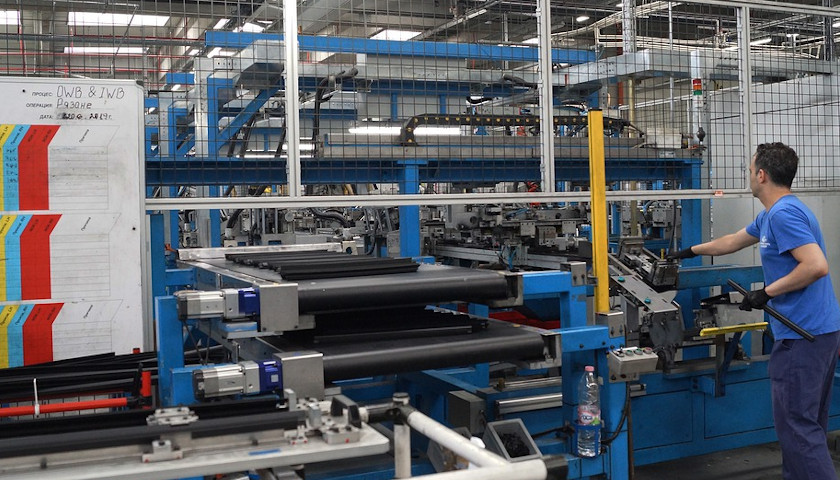by Scott McClallen
Ford Motor Company announced a $185 million investment to develop a new 200,000 square-foot global battery center to expand battery research and development for vehicles.
The new center will be called Ford Ion Park in a to-be-announced location.
“This $185 million investment will bolster our economy, attract innovative talent to Michigan, and help us continue to lead the world in advanced mobility and manufacturing,” Gov. Gretchen Whitmer said in a statement. “Ford is an American icon that has left its mark on the world over a century, and with this new facility and their research, they will shape the next century while reducing emissions and accelerating electrification.”
The company is building on nearly two decades of battery expertise by centralizing a team of 150 experts in battery technology development to help Ford more quickly develop and manufacture battery cells and batteries.
“We’re already scaling production of all-electric vehicles around the world as more customers experience and crave the fun-to-drive benefits of electric vehicles with zero emissions,” Hau Thai-Tang, Ford’s chief product platform and operations officer, said in a statement. “Investing in more battery R&D ultimately will help us speed the process to deliver more, even better, lower cost EVs for customers over time.”
The 200,000 square-foot lab will include pilot-scale equipment for electrode, cell, and array design and manufacturing and will use state-of-the-art technology to pilot new manufacturing techniques.
“We are creating new tools and solutions we need for a carbon-free, affordable and better future,” Thai-Tang said. “We are modernizing Ford’s battery development and manufacturing capabilities so we can better control costs and production variables in-house and scale production around the world with speed and quality.”
The latest announcement by Ford follows their commitment to invest $22 billion in electrified vehicles by 2025, and multiple vehicle brands have pledged to pivot to electric vehicles.
General Motors Co.’s pledged to switch from gas and diesel engines by 2035, while Volvo said it plans to become a fully electric car company by 2030.
However, problems still persist with switching away from gas-powered engines. There aren’t many electric charging stations in certain parts of Michigan, chargers aren’t compatible with all vehicles, charging time varies, and gas is more energy efficient.
“Pound for pound, gasoline or diesel fuel contain about 40 times as much energy as a state-of-the-art battery,” Samantha Gross, the director of the Energy Security and Climate Initiative at the Brookings Institute, wrote.
– – –
Scott McClallen is a staff writer covering Michigan and Minnesota for The Center Square. A graduate of Hillsdale College, his work has appeared on Forbes.com and FEE.org. Previously, he worked as a financial analyst at Pepsi.





